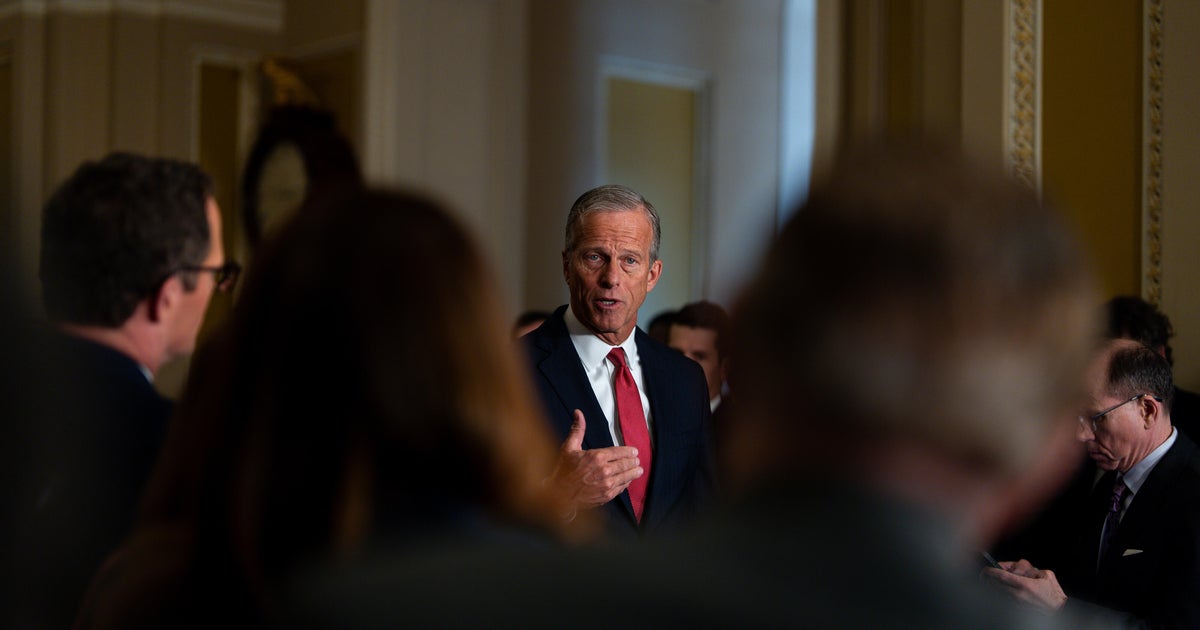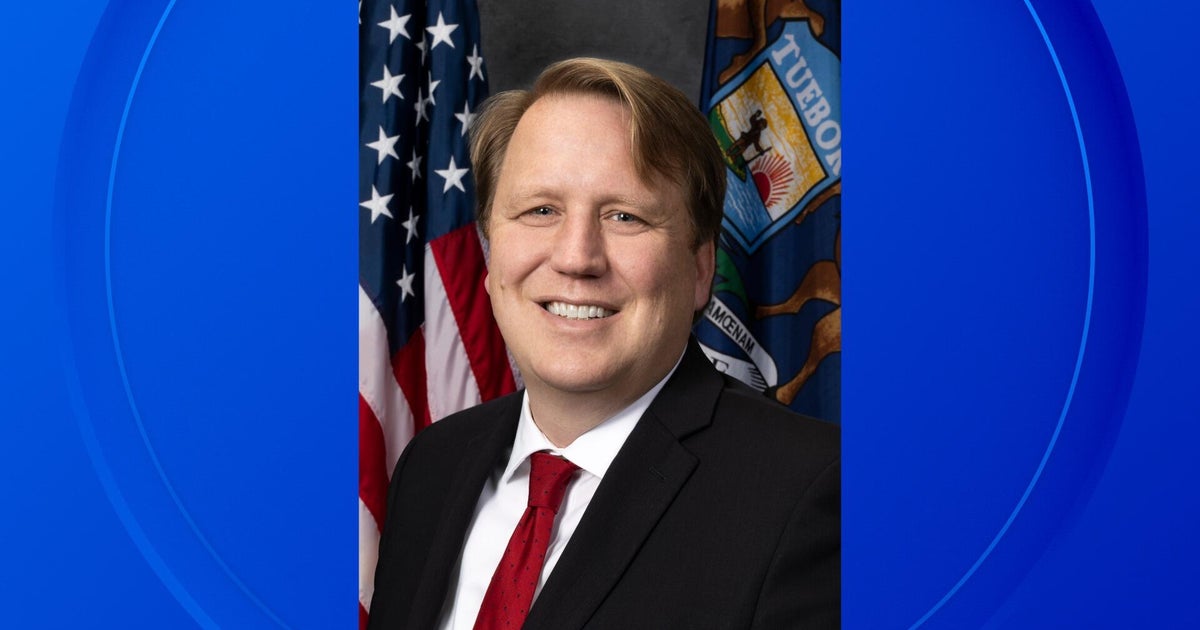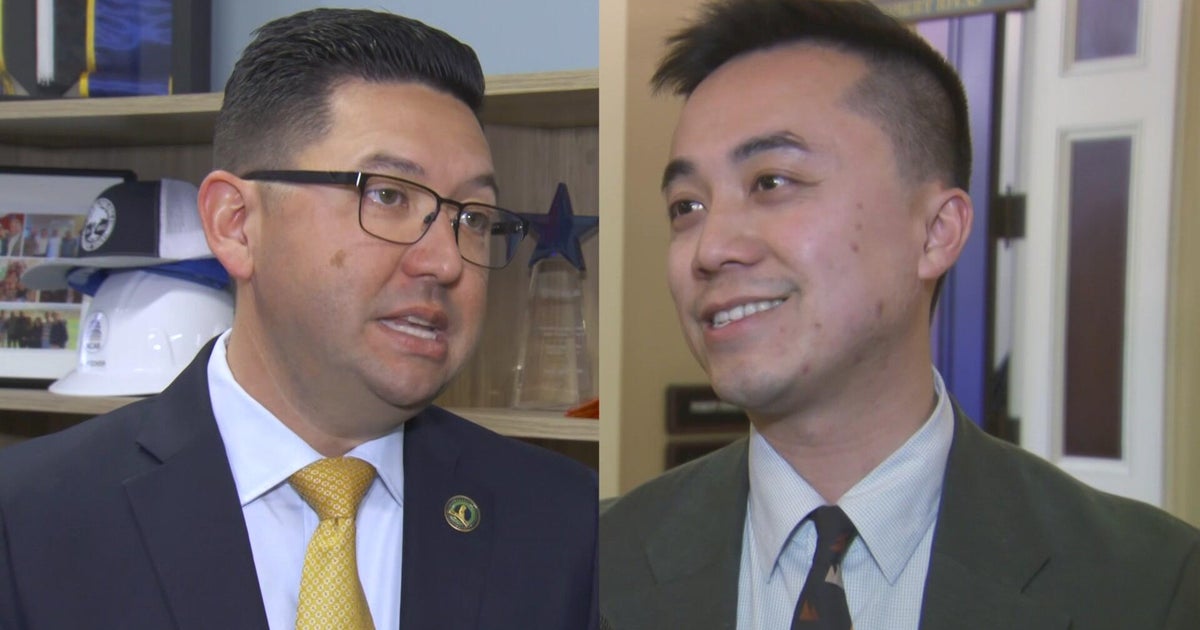House passes $895 billion defense bill with controversial provision on gender-affirming care
Washington — The House approved the massive $895 billion National Defense Authorization Act on Wednesday, after a controversial provision on gender-affirming care prompted backlash from Democrats and threatened to topple the must-pass bill's chances in the chamber.
In a 281 to 140 vote, the House approved the 1,800 page national security legislation to authorize funding for the Defense Department for fiscal year 2025. While the majority of Democrats opposed the bill, 81 joined with 200 Republicans in support of its passage. Just 16 Republicans opposed the legislation. It now heads to the Senate for approval.
The vote came after leaders in Congress struck a deal over the weekend on the legislation, which usually passes with wide bipartisan margins. House Minority Leader Hakeem Jeffries acknowledged ahead of the vote on Wednesday that there's "a lot of positive things" within the NDAA that were negotiated in a bipartisan manner, but also some "troubling" provisions.
Jeffries said Democrats didn't whip the NDAA vote, saying it would be a "member-to-member, case-by-case" decision.
Meanwhile, House Speaker Mike Johnson touted the legislation, saying Tuesday it "includes critical wins for our troops and for our country at a very important time."
Johnson cited a 14.5% pay raise for junior service members and improved housing for military families. And he celebrated an expansion of U.S. joint military exercises with Israel and increases in funding for defense initiatives in the Indo-Pacific, among other things.
"The safety and security of the American people is our top priority," Johnson said at a news conference, noting that he expected a "large" vote in favor of the legislation. "And this year's NDAA ensures our military has the resources and the capabilities needed to remain the most powerful fighting force on the planet."
The Louisiana Republican also touted the controversial provisions, including how the legislation restricts gender-affirming care for children of servicemembers and halts funds for the teaching of "critical race theory" at military academies. He said House Republicans "gutted the DEI bureaucracy" with the bill.
The provisions, especially on gender-affirming care, threatened the NDAA's chances in the House on Wednesday, while some key Democrats spoke out in opposition.
Rep. Adam Smith of Washington, the top Democrat on the House Armed Services Committee, acknowledged a number of bipartisan victories in the final version of the NDAA in a statement when the text of the legislation was released. He said Democrats were "successful in blocking many harmful provisions that attacked DEI programs, the LGBTQ community, and women's access to reproductive health care." But he said the provision banning gender-affirming care is "wrong."
The provision, which applies to the military's health care program, outlines that medical intervention "for the treatment of gender dysphoria that could result in sterilization may not be provided to a child under the age of 18."
Smith said the stipulation "injected a level of partisanship not traditionally seen in defense bills."
"Speaker Johnson is pandering to the most extreme elements of his party to ensure that he retains his speakership. In doing so, he has upended what had been a bipartisan process," Smith added.
House Republicans selected Johnson as their pick for speaker in the next Congress during leadership elections last month. But the Louisiana Republicans will still need to secure the support of the majority of the chamber in the new year to hold onto the gavel. With a razor-thin majority, speaker elections have posed difficulties for Republicans in recent years, while a group on the party's right flank has worked to extract concessions for their support.
Meanwhile, President-elect Donald Trump and his allies leaned into anti-trans rhetoric on the campaign trail in the lead up to the 2024 election. And since then, House Republicans led an effort to limit the use of single-sex bathrooms in the Capitol complex to those corresponding to users' "biological sex" after the first transgender person was elected to Congress.








